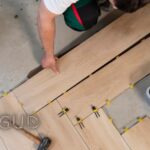Understanding Auction Purchases
Buying property through an auction offers a fast-paced and often cost-effective way to secure real estate. The structured bidding process enables prospective buyers to acquire homes, commercial spaces, or investment properties without enduring drawn-out negotiations. However, navigating the financial aspect of auction purchases requires preparation, as the payment structure differs significantly from traditional property transactions.
An auction house in Glasgow or any other location will usually require a buyer to provide a deposit immediately after winning a bid. This typically amounts to around 10% of the final price, with the remaining balance expected within a short timeframe, often 28 days. Given this limited window, prospective buyers must ensure their funding is in place before entering the bidding process.
Mortgage Options for Auction Properties
Challenges of Traditional Mortgages
Although mortgages remain a popular method for financing property acquisitions, securing one for an auction purchase presents unique challenges. Lenders follow strict assessment procedures, and processing times often exceed the short completion deadlines set by auction houses. The need for surveys, valuations, and underwriting can delay approval, making this financing option less feasible for those requiring immediate funds.
Pre-Arranged Mortgages
A pre-arranged mortgage, also known as an agreement in principle (AIP), offers a potential solution. Buyers obtain conditional approval from a lender before bidding, allowing for quicker processing once a property is secured. However, the mortgage amount may still be subject to valuation, and unexpected issues could lead to delays or rejection, leaving buyers at risk of losing their deposit if they cannot complete the purchase in time.
Bridging Loans as a Temporary Solution
What Are Bridging Loans?
Bridging loans provide short-term financing designed to bridge the gap between purchasing a property and securing long-term funding. These loans are particularly useful for auction buyers needing immediate access to funds while arranging a mortgage or selling an existing asset.
Advantages and Risks
The primary advantage of bridging finance lies in its speed. Lenders specializing in this type of loan often approve applications within days, ensuring buyers meet auction deadlines. However, bridging loans carry higher interest rates and additional fees, making them an expensive option if not repaid swiftly. Borrowers must have a clear exit strategy to avoid costly repayments over an extended period.
Cash Purchases: The Fastest Route
Why Cash Offers an Edge
Cash transactions eliminate the complexities of mortgage approvals or loan arrangements. Buyers with available funds can complete purchases immediately, giving them a competitive advantage over those reliant on financing. Sellers and auctioneers often favor cash buyers due to the certainty and speed of the transaction.
Considerations for Cash Buyers
Although purchasing outright avoids interest payments and lender restrictions, it ties up a significant amount of capital. Buyers must assess whether investing such a large sum in a single property aligns with their broader financial goals. Additionally, allocating funds to a single purchase may limit opportunities to diversify investments elsewhere.
Alternative Financing Methods
Joint Ventures and Investor Partnerships
For those lacking sufficient funds, joint ventures or private investor partnerships can provide an alternative route. Pooling resources with like-minded investors allows for property purchases without relying solely on personal capital or traditional lending institutions.
Self-Invested Personal Pensions (SIPPs)
Experienced buyers with a SIPP may explore using pension funds to invest in property. This option requires specialist knowledge and compliance with regulatory requirements, but it can provide a tax-efficient way to finance auction acquisitions.
Preparing Financially for an Auction Purchase
Researching the Market
Understanding local market conditions and typical property values allows buyers to set realistic budgets. Comparing similar properties sold at previous auctions provides insight into pricing trends and expected competition levels.
Conducting Due Diligence
Before bidding, reviewing the auction catalog and obtaining legal packs ensures awareness of any potential risks associated with the property. Checking for legal restrictions, outstanding debts, or structural concerns prevents unexpected complications post-purchase.
Setting a Maximum Bid Limit
Emotion-driven bidding can lead to overspending. Establishing a firm maximum bid based on available funds or pre-approved financing helps maintain financial discipline and prevents budget overruns.
Conclusion
Securing property at auction demands careful financial planning. While traditional mortgages may present challenges due to time constraints, alternative funding methods such as bridging loans, cash purchases, or investment partnerships offer viable solutions. Preparing in advance and choosing the most suitable financing strategy ensures a smooth auction experience, minimizing risks and maximizing opportunities for success.







